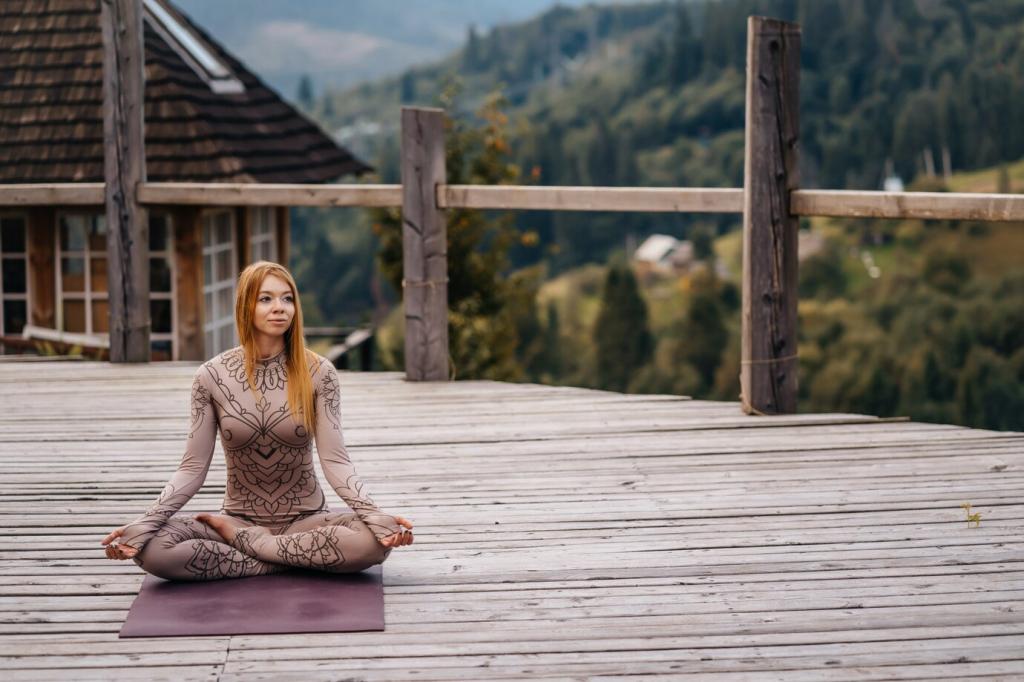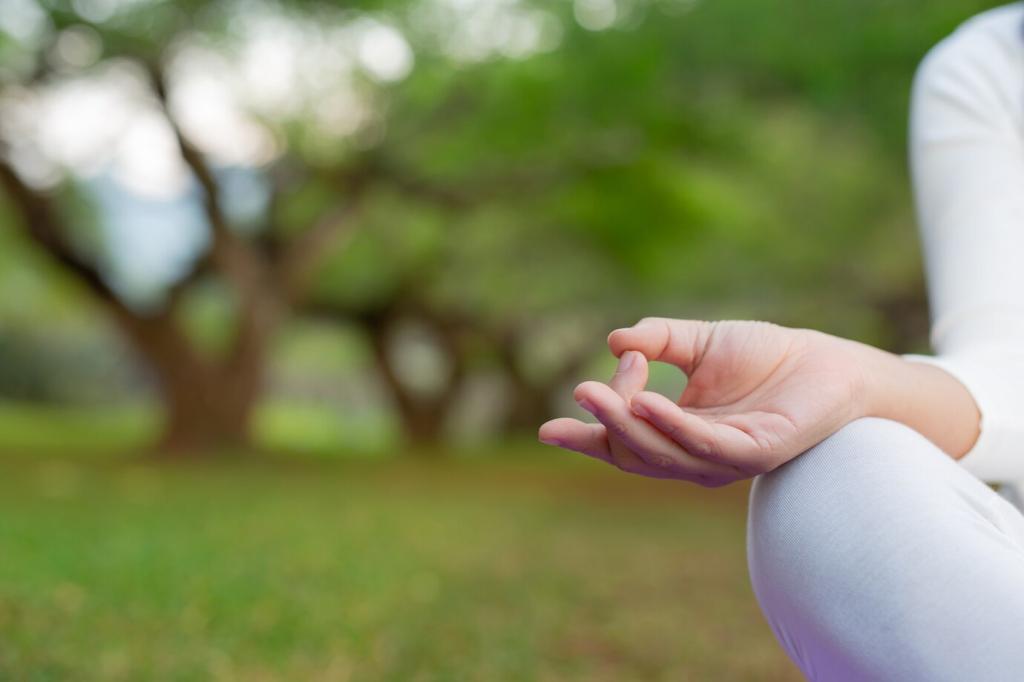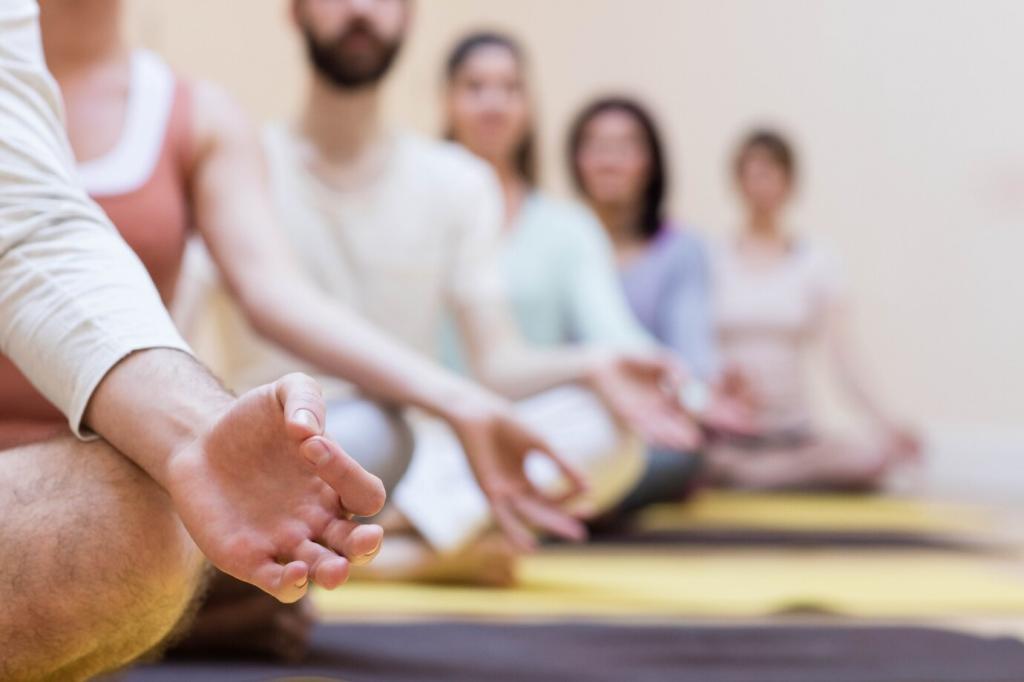
Mindful Habits: Incorporating Meditation into Your Day
Cultivating mindful habits is an empowering way to enhance your well-being, reduce stress, and foster a sense of balance in your life. Incorporating meditation into your daily routine doesn’t require drastic changes—small, intentional actions can create transformative results over time. Embracing these mindful practices allows you to approach each moment with greater clarity, compassion, and focus. Discover how to seamlessly blend meditation into your lifestyle for lasting peace and resilience.

The Essence of Mindfulness
Mindfulness is the practice of intentionally focusing your attention on the present moment with openness and non-judgment. It means noticing thoughts, sensations, and feelings as they arise, accepting them without criticism. This deliberate awareness helps you break free from habitual reactions and fosters a deeper understanding of yourself. Cultivating mindfulness isn’t about emptying your mind or achieving a specific state; rather, it’s about observing your experience with curiosity, which can ripple across all aspects of your daily existence, from conversations to chores to relaxation.

Meditation Defined
Meditation is a structured activity that anchors your attention and fosters mental clarity. While there are many techniques—like focusing on the breath, repeating a mantra, or visualizing calming scenes—they all aim to quiet the mind and nurture a sense of calm. Incorporating meditation into your routine can help reduce anxiety, improve focus, and promote emotional resilience. By setting aside even a few minutes each day, you create a safe space to observe thoughts and feelings, gently returning to your point of focus whenever distractions arise. Over time, these moments of stillness can become a wellspring of stability and peace.

The Relationship Between the Two
Mindfulness and meditation often complement each other, with mindfulness being both a mindset and a skill honed through meditation. While meditation is a formal practice that trains your attention, mindfulness extends that awareness into everyday life. Practicing meditation regularly can sharpen your ability to stay present during routine activities, while simply being mindful can offer brief pauses of calm without formal meditation. Understanding this relationship allows you to weave both practices into your schedule, enhancing their benefits and helping you stay emotionally balanced throughout your day.
Benefits of Daily Meditation Practice
Meditation has been shown to significantly reduce stress levels by modulating the body’s stress response and quieting the mind’s habitual patterns. By cultivating regular periods of stillness, you train yourself to observe thoughts and emotions without becoming overwhelmed by them. This non-reactive approach fosters emotional balance, allowing you to respond calmly in challenging situations. Over time, even a short daily meditation practice can shift your baseline mood, enhancing patience and equanimity so that life’s fluctuations become less destabilizing and more manageable.

Integrating Meditation into Your Routine
Morning Mindfulness
Starting your day with just a few minutes of meditation sets a positive tone that can influence your mood and decisions long after the session ends. Even before getting out of bed, you can take a few deep breaths, bringing awareness to your body and intentions for the day. This quiet time, free from distractions, allows your mind to gradually awaken, infusing your entire morning with calm. Over time, this morning ritual can make you more resilient to stress and help establish a foundation for a mindful day, even amid inevitable rush or unexpected obstacles.
Midday Meditation Breaks
Incorporating a brief meditation break in the middle of your day offers a powerful reset for both body and mind. Whether you’re at your desk, in a parked car, or enjoying a quiet corner, a few minutes of mindful breathing or body scanning can release built-up tension and promote clarity. These mini-sessions need not be elaborate—simply pausing, closing your eyes, and turning inward can create space from external pressures. By carving out this intentional pause, you’re better able to refocus and approach your remaining tasks with renewed energy and composure.
Evening Reflection
Concluding your day with a short meditation practice fosters gratitude, relaxation, and emotional release. As you settle into the evening, this reflective time allows you to process the day’s experiences thoughtfully, rather than letting them linger as tension or worry. Gentle breathing, guided imagery, or gratitude meditations can ease you toward restful sleep, encouraging your body to unwind and mind to settle. Making this practice a nightly habit not only improves sleep quality but helps you let go of stress, so you enter tomorrow with a refreshed and peaceful mindset.
